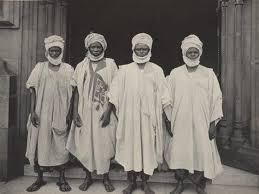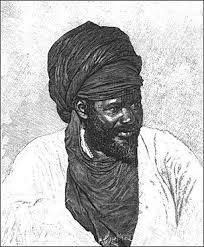The Sokoto Caliphate, one of the largest empires in African history, played a pivotal role in shaping the social, political, and religious landscape of West Africa. Founded in the early 19th century through a powerful Islamic reform movement, the caliphate left a profound legacy that still influences the region today. This article delves into the rise, flourishing, and eventual fall of the Sokoto Caliphate, offering insights into its historical significance and lessons for modern governance and unity.
Introduction: The Legacy of the Sokoto Caliphate
The Sokoto Caliphate is a testament to the power of leadership, religious conviction, and the ability to unite diverse communities. It began as a revolution, grew into an empire, and left behind an enduring influence. But how did this empire rise to prominence, and what caused its eventual decline?

The Roots of the Sokoto Caliphate
1. Pre-Caliphate West Africa
Before the caliphate, West Africa was a region of diverse ethnic groups, kingdoms, and religions. Islam had spread across the Sahel through trade routes, but traditional religions and governance systems remained dominant.
2. The Influence of Islamic Reform
The rise of the Sokoto Caliphate was deeply tied to the Islamic reform movement led by Usman dan Fodio. This movement sought to purify Islam, challenge corrupt leadership, and address social injustices, particularly those affecting the Fulani and other marginalized groups.
The Rise of Usman dan Fodio

1. Usman dan Fodio: The Revolutionary Leader
Born in 1754, Usman dan Fodio was a Fulani scholar and preacher who became disillusioned with the political and religious corruption of Hausa city-states. His teachings emphasized justice, Islamic law, and equality, resonating with people across the region.
2. The Jihad Movement
In 1804, Usman dan Fodio declared a jihad against the ruling elites of the Hausa city-states. His call to arms united diverse groups, including the Fulani and Hausa commoners, in a revolutionary movement to establish an Islamic state governed by Sharia law.
The Establishment of the Sokoto Caliphate
1. Victories and Expansion
Within a few years, Usman dan Fodio and his followers defeated major Hausa states, including Kano, Zaria, and Katsina. The newly established Sokoto Caliphate stretched across much of present-day northern Nigeria and beyond.
2. A Centralized Islamic State
Usman dan Fodio created a centralized Islamic state, appointing emirs to govern provinces while maintaining religious and political authority from Sokoto. This system allowed for efficient administration and religious cohesion.
The Golden Age of the Sokoto Caliphate
1. Governance and Administration
The Sokoto Caliphate implemented Sharia law, which provided a framework for justice and governance. The caliphate’s leaders promoted education, trade, and infrastructure development, creating a prosperous and stable society.
2. Economic Prosperity
Agriculture, trade, and taxation formed the economic backbone of the caliphate. The region thrived as a center of commerce, connecting West Africa to North Africa and the Middle East through trans-Saharan trade routes.
3. Promotion of Islamic Scholarship
The caliphate became a hub of Islamic learning, attracting scholars from across the Muslim world. Schools and libraries flourished, spreading knowledge and religious teachings.
Challenges Faced by the Sokoto Caliphate
1. Internal Conflicts
While the caliphate was a symbol of unity, tensions occasionally arose between emirs and the central authority in Sokoto. These power struggles weakened the cohesion of the empire.
2. Resistance and Rebellions
Some groups resisted the caliphate’s authority, particularly those with strong ties to pre-Islamic traditions. Rebellions and uprisings periodically threatened stability.
3. Dependence on Slavery
The caliphate’s reliance on slavery as an economic system became a moral and practical challenge, especially as global movements against slavery gained momentum.
The Decline of the Sokoto Caliphate
1. European Colonization
By the late 19th century, European powers were scrambling for control of Africa. The British Empire, in particular, viewed the Sokoto Caliphate as a strategic target.
2. The Fall of Sokoto
In 1903, British forces led by Frederick Lugard defeated the caliphate’s armies and captured Sokoto. This marked the end of the caliphate as an independent entity, though its structures were incorporated into the British colonial administration.
Legacy of the Sokoto Caliphate
1. Religious and Cultural Influence
The Sokoto Caliphate left a lasting impact on the spread of Islam in West Africa. Its emphasis on education and Islamic scholarship continues to inspire generations.
2. Political Structures
Many of the caliphate’s administrative systems, including the emirate system, were adapted into Nigeria’s governance during and after colonial rule.
3. Lessons in Leadership and Unity
The Sokoto Caliphate serves as an example of how visionary leadership can unite diverse communities, though it also highlights the challenges of maintaining such unity over time.
The Sokoto Caliphate in Modern Nigeria
1. Influence on Northern Nigeria
The emirs and religious institutions of northern Nigeria trace their roots to the Sokoto Caliphate, playing significant roles in politics, culture, and religion today.
2. Calls for Reconciliation
The caliphate’s history is a reminder of the need for reconciliation and mutual respect among Nigeria’s diverse ethnic and religious groups.
Conclusion: Learning from the Sokoto Caliphate
The Sokoto Caliphate remains one of Africa’s most remarkable empires, embodying both the promise and challenges of governance, unity, and reform. Its story offers valuable lessons on leadership, religious conviction, and the pursuit of justice. As we remember its rise and fall, we can strive to build societies that honor diversity, promote education, and uphold the values of justice and equity.
Also Read; How to Dress for Your Body Shape: Flattering Styles for Everyone
FAQs
1. Who founded the Sokoto Caliphate?
The Sokoto Caliphate was founded by Usman dan Fodio, a Fulani Islamic scholar and leader, in 1804.
2. What caused the fall of the Sokoto Caliphate?
The caliphate fell due to British colonization in 1903, when colonial forces defeated its armies and integrated its structures into their administration.
3. What was the role of religion in the Sokoto Caliphate?
Religion was central to the caliphate’s governance and identity, with Sharia law serving as the foundation for its legal, social, and political systems.
4. How did the Sokoto Caliphate impact modern Nigeria?
The caliphate influenced Nigeria’s political structures, religious practices, and cultural heritage, particularly in the northern regions.
5. Why is the Sokoto Caliphate significant in African history?
The Sokoto Caliphate was one of the largest empires in Africa, demonstrating the power of religious reform and unity while leaving a lasting legacy in governance and education.


